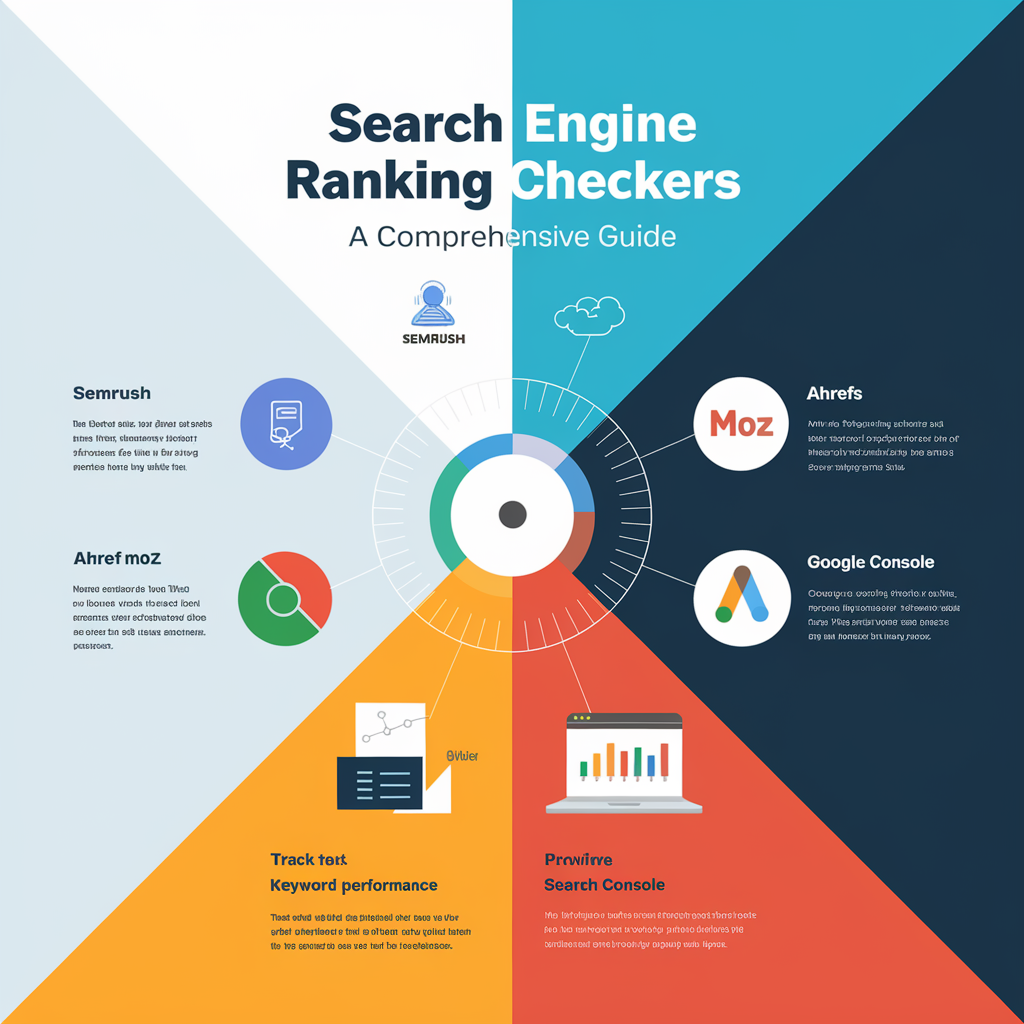Search Engine Ranking Checkers: A Comprehensive Guide
For businesses and content creators, this means ranking high on search engine results pages (SERPs). But how do you know where you stand? Enter search engine ranking checkers. These tools provide valuable insights into your website’s performance in SERPs. They help you understand how your SEO efforts are paying off.
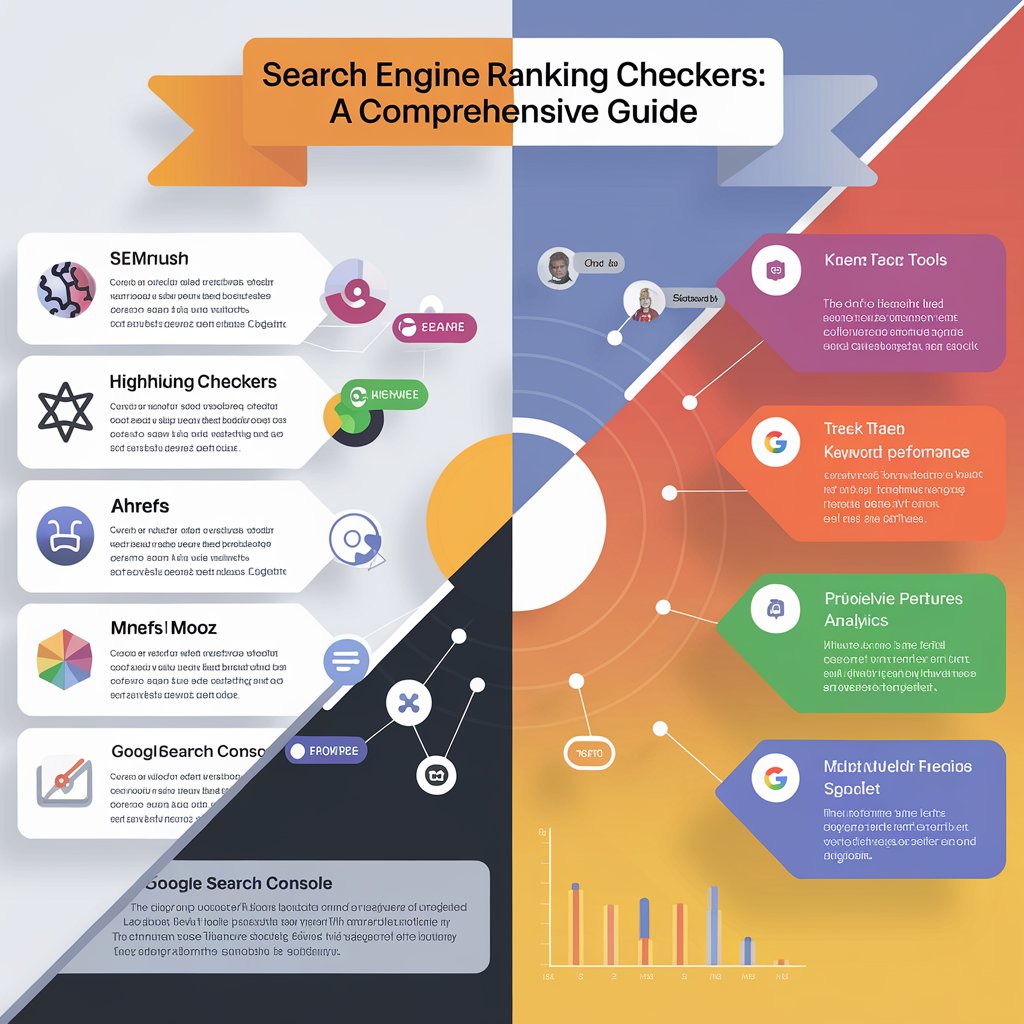
But what exactly are search engine ranking checkers? They are tools that track the position of a website’s pages for specific keywords. They help you understand where your website ranks among the competition. Why is this important? Knowing your rank can help you optimize your SEO strategy. It can guide your efforts and help you focus on what works.
In this comprehensive guide, we will delve deep into the world of search engine ranking checkers. We will explore their importance, how they work, and how to choose the right one for your needs. Whether you’re an SEO professional, a digital marketer, or a website owner, this guide is for you. Let’s get started.
Understanding Search Engine Ranking Checkers
Search engine ranking checkers are essential tools in the SEO toolkit. They provide a snapshot of your website’s visibility in search engine results.
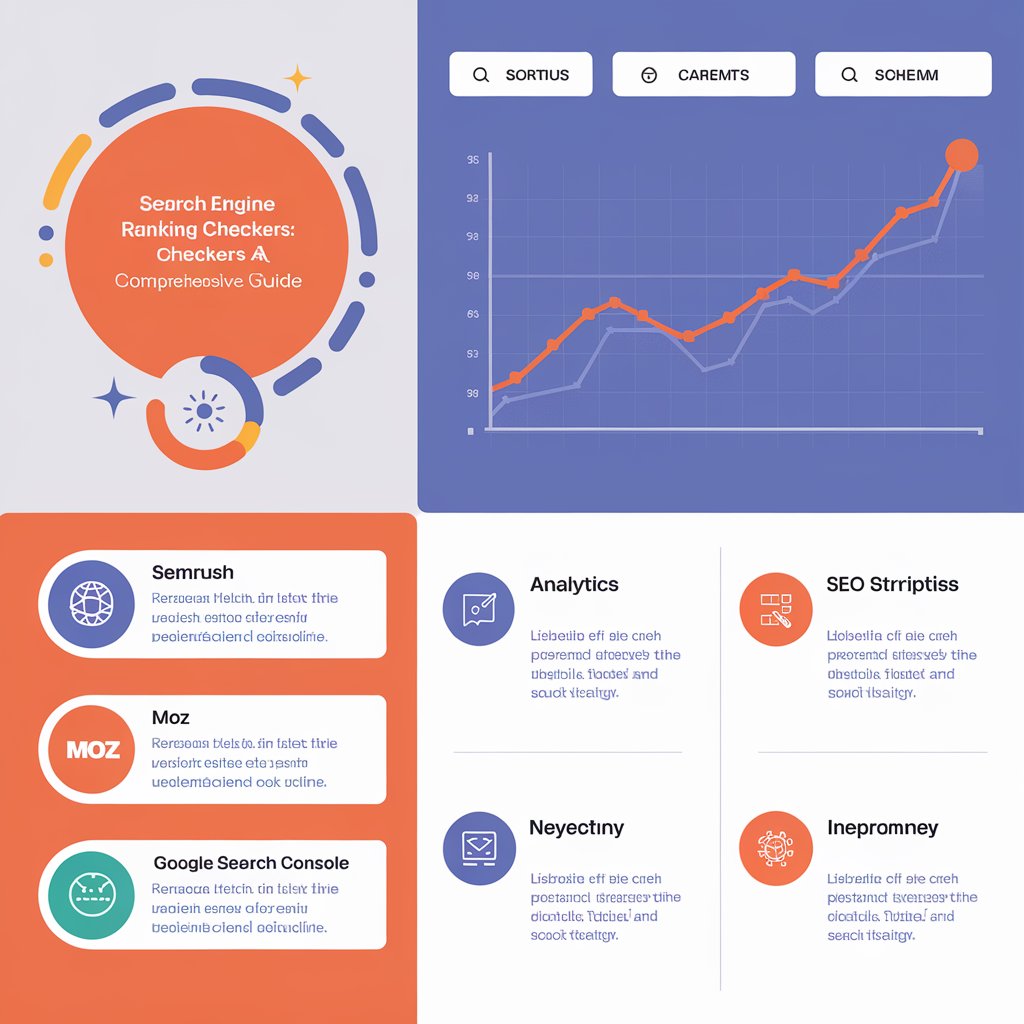
But what exactly do they do? They track the position of your website’s pages for specific keywords. They show where you rank among your competitors. This information is crucial. It helps you understand the effectiveness of your SEO efforts. It also guides your future strategies. Let’s delve deeper into what these tools are and their role in SEO.
What Are Search Engine Ranking Checkers?
Search engine ranking checkers, also known as SERP checkers, are tools that monitor a website’s position in search engine results. They track how well your website ranks for specific keywords. These tools provide real-time data. They show where your website stands in the competitive landscape. This information is crucial for any business or content creator looking to improve their online visibility.
The Role of Search Engine Ranking Checkers in SEO
Search engine ranking checkers play a pivotal role in SEO. They provide insights into your website’s performance. They help you understand how your SEO strategies are working. This information is invaluable. It can guide your SEO efforts and help you focus on what works. By tracking your rankings, you can identify areas of improvement. You can also monitor the impact of any changes you make to your website or content. In essence, search engine ranking checkers are your eyes on the SERPs.
The Importance of Accurate Search Engine Rankings
Accurate search engine rankings are the cornerstone of effective SEO. They provide a clear picture of your website’s visibility.
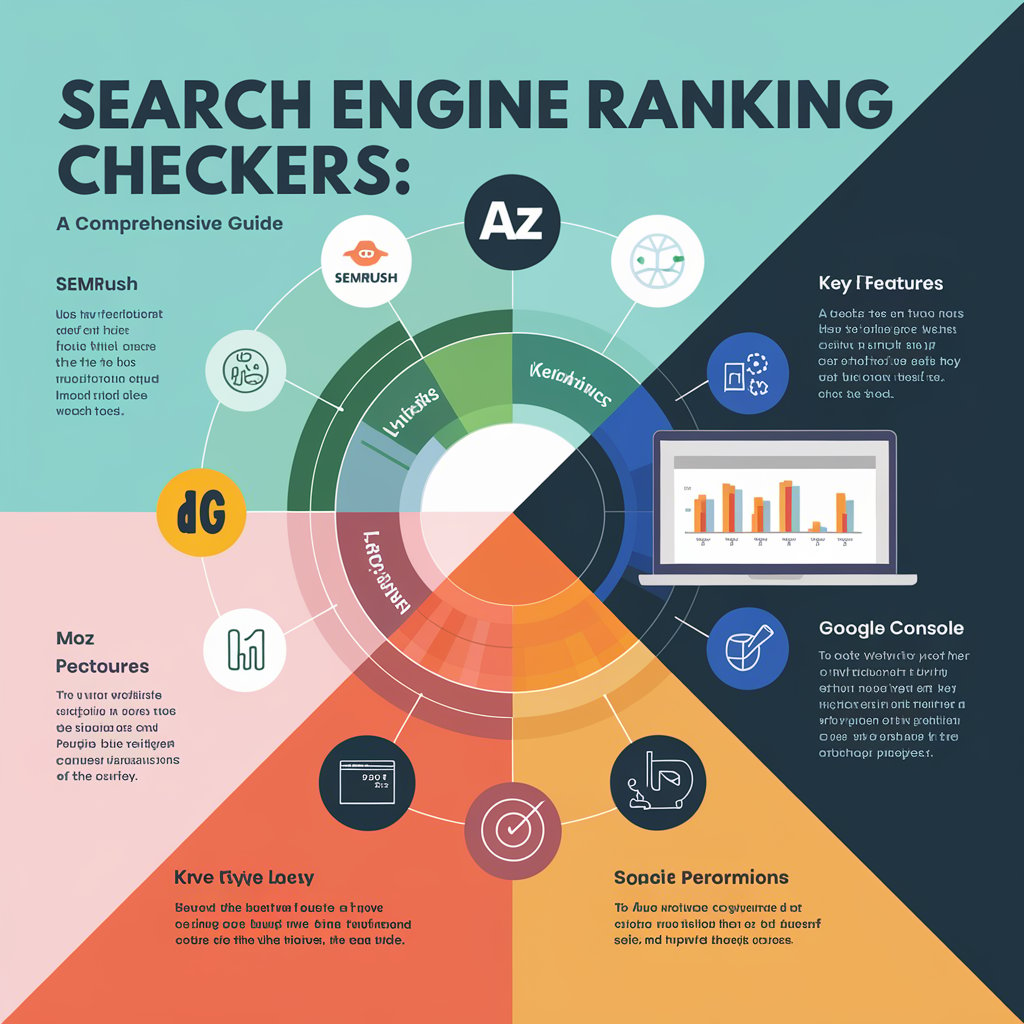
But why is accuracy so important? It’s simple. The more accurate your ranking data, the better your understanding of your website’s performance. This understanding is crucial. It helps you make informed decisions about your SEO strategy. Let’s delve deeper into why tracking your search engine rankings matters and its impact on your business goals.
Why Tracking Your Search Engine Rankings Matters
Tracking your search engine rankings is essential for several reasons. First, it helps you understand your website’s visibility. This visibility is directly linked to your website’s traffic. The higher your rankings, the more likely users are to click on your website. Second, tracking your rankings allows you to monitor your SEO efforts. You can see the impact of your strategies. You can identify what’s working and what’s not. This information is invaluable for refining your SEO strategy.
The Impact of Search Engine Rankings on Business Goals
Search engine rankings have a direct impact on your business goals. Higher rankings lead to more visibility. More visibility leads to more traffic. And more traffic can lead to more conversions. Whether your goal is to increase sales, generate leads, or boost brand awareness, search engine rankings play a key role. By tracking your rankings, you can align your SEO efforts with your business goals. You can focus on the keywords that drive the most valuable traffic. In essence, accurate search engine rankings are a key metric for measuring your online success.
Key Features of Effective Search Engine Ranking Checkers
Search engine ranking checkers come in many forms. They offer a range of features.
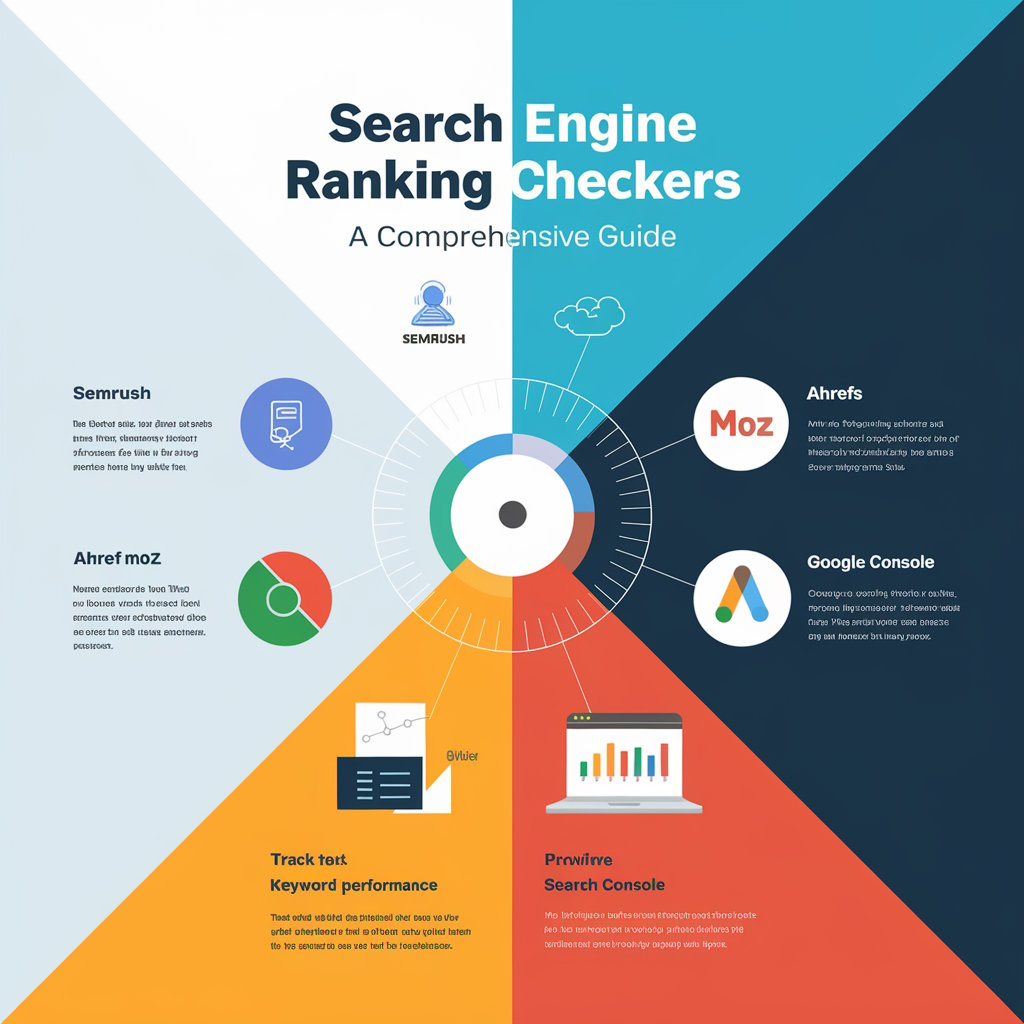
But not all checkers are created equal. Some are more effective than others. So, what makes a ranking checker effective? There are several key features to look for. These include accuracy, real-time data, and comprehensive reporting. Let’s explore these features in more detail.
Accuracy and Real-Time Data
Accuracy is the most critical feature of a ranking checker. Without accurate data, your SEO efforts could be misguided.

Real-time data is equally important. Search engine rankings can fluctuate frequently. Having access to real-time data allows you to respond quickly to these changes. It helps you stay ahead of the competition. In short, accuracy and real-time data are essential for effective SEO management.
Comprehensive Reporting and Analytics
Comprehensive reporting is another key feature of effective ranking checkers. A good checker should provide detailed reports on your rankings. These reports should be easy to understand. They should offer insights into your website’s performance.
Analytics is another important feature. It should provide data on keyword performance, competitor analysis, and more. This data can help you refine your SEO strategy. In conclusion, comprehensive reporting and analytics are crucial for making informed SEO decisions.
Free vs. Paid Ranking Checkers: What’s the Difference?
When it comes to search engine ranking checkers, you have two main options. You can either use a free tool or invest in a paid one. But what’s the difference between the two? The main difference lies in the features they offer. Free tools are often more basic. They provide limited data and lack advanced features. Paid tools, on the other hand, offer more comprehensive data and features.
Benefits of Paid Search Engine Ranking Checkers
Paid ranking checkers offer several benefits. Firstly, they provide more accurate and detailed data. This can be crucial for effective SEO management. Secondly, they often include advanced features. These can include competitor analysis, keyword research tools, and more. These features can provide valuable insights for your SEO strategy. Lastly, paid tools often offer better customer support. This can be helpful if you encounter any issues or need assistance.
When to Use Free Search Engine Ranking Checkers
Free ranking checkers can be useful in certain situations. If you’re just starting out with SEO, a free tool can be a good starting point. It can help you get a basic understanding of search engine rankings. However, free tools may not provide the detailed data you need for a comprehensive SEO strategy. They can also lack the advanced features offered by paid tools. So, while free tools can be useful, they may not be sufficient for more advanced SEO needs. In conclusion, the choice between free and paid ranking checkers depends on your specific needs and budget.
How to Choose the Right Search Engine Ranking Checker
Choosing the right search engine ranking checker can be a daunting task. There are many tools available, each with its own set of features and benefits. Your choice will depend on several factors. These include your SEO needs, your budget, and your level of SEO expertise. Let’s delve into these factors in more detail.
Assessing Your SEO Needs and Goals
Before choosing a tool, you need to assess your SEO needs and goals. What are you hoping to achieve with your SEO efforts? Do you need a tool that provides detailed keyword analysis? Or are you more interested in tracking your website’s overall ranking in search engine results?

Your answers to these questions will help guide your choice. For example, if you’re focused on local SEO, you’ll want a tool that offers geo-specific ranking data.
Comparing Popular Search Engine Ranking Checkers
Once you’ve assessed your needs, it’s time to compare different tools.
Here are a few popular search engine ranking checkers to consider:
- Tool 1: Known for its accuracy and comprehensive data.
- Tool 2: Offers advanced features such as competitor analysis.
- Tool 3: Praised for its user-friendly interface and excellent customer support.
- Tool 4: Provides detailed keyword analysis and tracking.
- Tool 5: Offers a free version with basic features, as well as a paid version with more advanced features.
Each of these tools has its strengths and weaknesses. Your choice will depend on which features are most important to you.nRemember, the best tool for you is the one that meets your specific SEO needs and goals.
Step-by-Step Guide to Using Search Engine Ranking Checkers
Once you’ve chosen a search engine ranking checker, it’s time to start using it. This process can be broken down into two main steps: setting up your ranking checker and interpreting the data. Let’s take a closer look at each of these steps.
Setting Up Your Ranking Checker
The first step is to set up your ranking checker. This process will vary depending on the tool you’ve chosen. However, there are some common steps that you’ll likely need to follow. First, you’ll need to create an account with the ranking checker. Next, you’ll need to add your website to the tool. This usually involves entering your website’s URL and possibly verifying ownership of the site. Once your website is added, you can start tracking your rankings. You’ll need to enter the keywords you want to track. These should be the keywords that are most important to your SEO strategy.
Interpreting the Data and Taking Action
After setting up your ranking checker, the next step is to interpret the data. This involves analyzing your website’s rankings for your chosen keywords.

You’ll want to look for trends in your data. Are your rankings improving, declining, or staying the same? This information can help you understand the effectiveness of your SEO efforts. Next, you’ll want to take action based on your data. If your rankings are improving, keep doing what you’re doing. If they’re declining, it may be time to adjust your SEO strategy.
Remember, the goal of using a ranking checker is not just to track your rankings, but to improve them. By interpreting your data and taking action, you can use your ranking checker to drive your SEO success.
Overcoming Common Challenges with Ranking Checkers
Using a search engine ranking checker can be a game-changer for your SEO strategy. However, like any tool, it comes with its own set of challenges. Understanding these challenges can help you use your ranking checker more effectively. Let’s take a look at some of the most common challenges and how to overcome them.
Dealing with Fluctuations in Rankings
One common challenge is dealing with fluctuations in rankings. Search engine rankings can change frequently. This can make it difficult to track your progress and measure the success of your SEO efforts. However, it’s important to remember that fluctuations are a normal part of SEO. Instead of focusing on short-term changes, look at long-term trends. If your rankings are consistently improving over time, you’re on the right track.
Addressing Limitations and Pitfalls
Another challenge is addressing the limitations and pitfalls of ranking checkers. For example, some ranking checkers may not provide accurate data for local search results. Others may not update their data frequently enough to provide real-time insights.nTo overcome these challenges, it’s important to choose a ranking checker that meets your specific needs.
Consider factors like accuracy, update frequency, and the ability to track local rankings when choosing your tool. Remember, no tool is perfect. But by understanding the limitations and potential pitfalls, you can make the most of your search engine ranking checker.
The Future of Search Engine Ranking Checkers
The world of SEO is always evolving. So too are the tools we use to track and improve our search engine rankings. Let’s take a look at what the future might hold for search engine ranking checkers.
Emerging Trends and New Features
One trend we’re seeing is the integration of more advanced analytics into ranking checkers. This includes features like predictive analytics, which can help you anticipate changes in your rankings. Another trend is the integration of ranking checkers with other SEO tools. This can provide a more holistic view of your SEO performance.
The Role of AI and Machine Learning
Artificial intelligence (AI) and machine learning are also playing a growing role in search engine ranking checkers. These technologies can help to analyze large amounts of data more quickly and accurately. They can also help to identify patterns and trends that might be missed by human analysts. In the future, we can expect to see even more advanced AI and machine learning features in our ranking checkers. This will help us to better understand our SEO performance and make more informed decisions.
Case Studies: Success Stories Using Ranking Checkers
Learning from others’ experiences can be incredibly valuable. Especially when it comes to SEO and using ranking checkers. Let’s take a look at some real-world examples of businesses that have successfully used these tools.
How Businesses Improved Their SEO with Ranking Checkers
One e-commerce company, for example, used a ranking checker to identify high-performing keywords. They then optimized their product pages around these keywords.

As a result, they saw a significant increase in organic traffic and sales. Another business used a ranking checker to monitor their competitors’ SEO strategies. This helped them to identify opportunities for improvement and stay ahead of the competition.
Lessons Learned from Real-World Applications
These case studies highlight the importance of using ranking checkers as part of a comprehensive SEO strategy. They also show that these tools can provide valuable insights that can directly impact a business’s bottom line. However, it’s important to remember that every business is unique. What works for one may not work for another. Therefore, it’s crucial to use ranking checkers in a way that aligns with your specific business goals and SEO strategy.
Additional Resources and Tools
While ranking checkers are powerful tools, they are just one piece of the SEO puzzle. To truly excel in SEO, you’ll need to leverage a variety of tools and resources.

Integrating Ranking Checkers with Other SEO Tools
For instance, integrating your ranking checker with a keyword research tool can help you discover new opportunities. Similarly, using a backlink analysis tool alongside your ranking checker can provide deeper insights into your website’s performance. Finally, don’t forget about analytics platforms like Google Analytics, which can provide valuable data about your website’s traffic and user behavior.
Further Reading and Learning
SEO is a constantly evolving field, so continuous learning is crucial. There are many great resources available online, from SEO blogs and forums to online courses and webinars. Some recommended resources include the Google Webmaster Central Blog, Moz’s SEO Learning Center, and the SEO section of the Search Engine Journal. Remember, the key to SEO success is staying informed and adapting to changes in the search landscape.
Glossary of Terms Related to Search Engine Ranking Checkers
In the world of SEO, there are many terms and acronyms that can be confusing for beginners. To help you navigate this complex field, we’ve compiled a glossary of key terms related to search engine ranking checkers.
- SERP: Stands for Search Engine Results Page. This is the page that users see after they perform a search on a search engine like Google.
- Keyword: A word or phrase that users enter into a search engine. Websites are ranked based on their relevance to these keywords.
- Ranking: The position of a website on a SERP for a specific keyword. The goal of SEO is to improve a website’s ranking for relevant keywords.
- Backlink: A link from one website to another. Backlinks are a key factor in how search engines rank websites.
- Algorithm: The complex set of rules that search engines use to rank websites. These algorithms are constantly updated and refined.
Understanding these terms is crucial for making the most of your search engine ranking checker. With this knowledge, you’ll be better equipped to interpret the data from your ranking checker and make informed decisions about your SEO strategy.
Conclusion and Next Steps
In this comprehensive guide, we’ve explored the world of search engine ranking checkers. We’ve delved into their importance, key features, and how to choose the right one for your needs.

Implementing Insights from Your Ranking Checker
Now, it’s time to put this knowledge into action. Start by choosing a ranking checker that aligns with your SEO goals and needs.
Continuous Improvement and SEO Success
Remember, SEO is a continuous process. Regularly monitor your rankings, adjust your strategies, and strive for continuous improvement. With the right tools and strategies, you can achieve SEO success. Stay tuned for more guides and resources to help you on your SEO journey.


